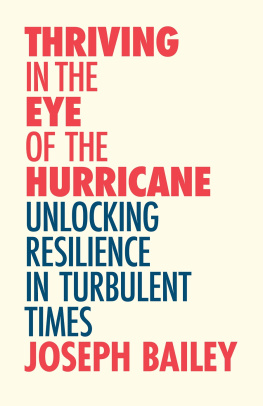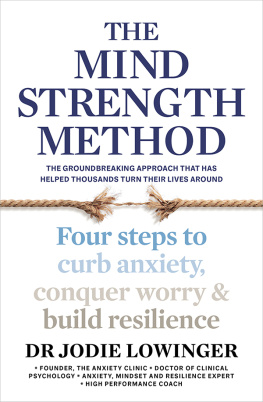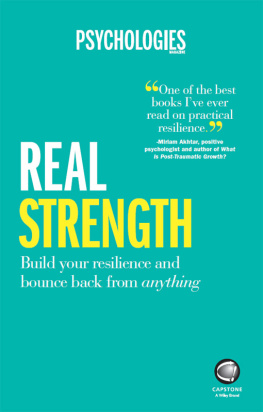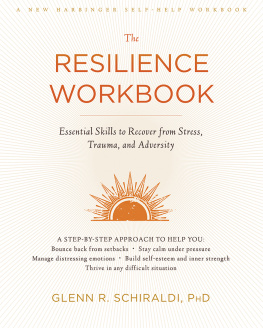HarperCollinsPublishers
1 London Bridge Street
London SE1 9GF
www.harpercollins.co.uk
First published by HarperCollinsPublishers 2018
FIRST EDITION
Maya Yoshida 2018
Cover design HarperCollinsPublishers 2018
Cover photograph Colin Bell 2018
A catalogue record of this book is available from the British Library
Maya Yoshida asserts the moral right to be identified as the author of this work
All rights reserved under International and Pan-American Copyright Conventions. By payment of the required fees, you have been granted the nonexclusive, non-transferable right to access and read the text of this e-book on screen. No part of this text may be reproduced, transmitted, downloaded, decompiled, reverse engineered, or stored in or introduced into any information storage retrieval system, in any form or by any means, whether electronic or mechanical, now known or hereinafter invented, without the express written permission of HarperCollins e-books.
Find out about HarperCollins and the environment at
www.harpercollins.co.uk/green
Source ISBN: 9780008289331
Ebook Edition May 2018 ISBN: 9780008289348
Version: 2018-04-23
CONTENTS
CHAPTER 1
CHAPTER 2
CHAPTER 3
CHAPTER 4
CHAPTER 5
CHAPTER 6
On 24 August 2017 I opened a new chapter in my life as a Southampton player when I signed a new three-year contract with the club.
I felt rejuvenated. On Southamptons official website the announcement of my new contract was accompanied by a photo of me with Mr Les Reed, the clubs vice chairman, smiling and shaking each others hand.
In truth, the vice chairman and my agent had been locked in a heated discussion until the very last minute in our final negotiation, which was supposed to be a formality, and my presence was required only to sign on the dotted line, according to my agent. Sitting next to him, I was actually thinking, This is so not what I expected , although I also have to admit that a situation like this is not unusual in the world of professional football. Business is business.
The three-month-long negotiation came to a conclusion and a new contract, which had always been the first priority for both the club and myself, was finally agreed. It was, in fact, my second new contract here at this club on the south coast of England. I was delighted that I could continue my journey as a Southampton player and try to better myself through all the challenges we continued to face together. Not only signing, but also announcing the new contract on my 29th birthday, was the best present I could possibly have asked for.
Playing in the Premier League had been my dream ever since I made up my mind to become a professional footballer in my early teens. It was also one of the goals I was audacious enough to believe would eventually be achieved. With the 2017/18 season being the sixth in my Premier League career, I honestly feel, as I said through the clubs website when my new contract was announced, Southampton is my home. That was my sincere first thought.
Then I received another offer, this time from a British publisher. It was shortly after I began my sixth Premier League season as a Southampton centre-back, resolved to make it the fifth consecutive top-10 finish for the club. In England the summer transfer window for a player usually closes at the end of August. The market is always open for authors, though, and I had no reason not to listen to what they had to offer.
The offer was, as it turned out, from one of the major publishers in the United Kingdom. Just by taking a quick look at their authors list in the sports non-fiction category, I could see all those big names, including David Beckham and Frank Lampard, with whom I had dreamed to be on the same field when I was a kid. And now, here was an opportunity to put my name onto the same list as them.
Even though the book was explained to me as a joint project with the publishers Japan office, to my Japanese mind it felt like I would become the author of a foreign book. It is true that it has been more than eight years since I moved abroad, so I am used to being away from Japan. I could add that I am now quite comfortable communicating in English. As an author, I already have some experience publishing my books in my native country and, at one time, even joked that I rather fancied a quality post-playing life living on my book royalties. But still, publishing a book in English in the United Kingdom sounded a tough ask to me. It was as if I would have the Premier League of publishing to prove myself in, as well as the real Premier League.
Then an editor at the publisher said to me, Dont worry. You have resilience, Maya!
Ri-zi-li-ens? I couldnt even spell the word in my head at first. There seem to be various meanings in Japanese for this word, such as gyakkyo-ryoku (capacity to recover from adversity), orenai-kokoro (unbroken mind), fukugen-ryoku (ability to spring back into shape) or taikyu-ryoku (durability).
My interpretation is makenai-chikara strength of unbeatable mind.
Bingo! As soon as this interpretation came to my mind, a light bulb was switched on brightly in my head (in the head of Maya Yoshida the author, I should say) because this particular strength is the essence of Maya power. Thats the quality that has carried me through, all the way from my childhood to the present day as a Premier League defender, striving to improve to reach a higher standard, sometimes feeling low in a tough environment, sometimes having luck on my side to break through, via the city of Nagoya in Japan and of Venlo in the Netherlands, all the way to Southampton.
Until I received this publishing opportunity, Id never said this English word resilience out loud but it has always been inside me, I realised. The more I thought about it, the more I became sure of it. I also started to believe that I could convey my feelings, thoughts and stories well enough to readers in both the United Kingdom and Japan through a book, if it had resilience as its underlying theme.
Needless to say, writing a book itself is not easy. I like writing, but finishing a book under the pressure of an approaching deadline is another matter. I was sure that I would sometimes need to fight off drowsiness as I sat in front of my computer. But I was also sure that my strength of unbeatable mind would once again carry me through this new challenge.
It was a huge opportunity that I could not and should not miss to make my dbut in the field of English publishing at the top level. There was no time to hesitate, I decided in the end.
Yes, lets do this! I made one of the biggest decisions of my life. Well, that may be exaggerating a bit, but nonetheless I signed on a publishing contract that was also put in front of me at the beginning of my sixth year at Southampton.
There was one specific request from the publishers Japan office about the direction of this book. They wanted me to see myself as a samurai, a warrior of a high social rank in eleventh- to nineteenth-century Japan, but with a size-five football at my feet instead of a shiny sword in my hands. So, to be more precise, the theme of the book should be samurai resilience.
My initial reaction to this was that there seemed to be a slight difference between what Western people think of as a samurai and what we Japanese do. When I think of a samurai, what comes to my mind is someone prepared, if necessary, to kill himself by committing an act of hara-kiri cutting his stomach open to die in order to avoid dishonour.
On the other hand, I am under the impression that people in Europe see a samurai in the image of a true warrior: a brave fighter who never gives up and keeps on going till the very end. It is an image of someone with incredible toughness, whose every deed is fortified by resilience. This Western view of a samurai, as I understand it, is also quite different from someone who loves cracking jokes, the image I project in the Maya world, if I may call it that the world I have depicted in my blog and previous books.











